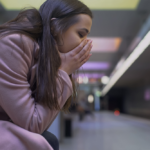
Coping With Postpartum Depression
July 21, 2021How to Escape a Victim Mentality
July 29, 2021Since 1999, nearly 841,000 people have died from a drug overdose. In 2019 alone, over 70,000 people in the United States died from an overdose. Opioids have been the main source of these overdoses, but this type of drug isn’t necessarily being smoked, snorted, or injected: opioids can also be prescribed by your family physician.
Typically, when people think of drug addiction, they expect the person struggling to look a particular way or live in a specific area. Especially recently, though, the opioid problem has grown in large city suburbs. Places with societal issues you may not even consider are struggling with what has taken place with opioids.
Stereotypes of Drug Addiction
For years, many people have a stereotype in their minds that drug addiction and drug abuse are something that only impoverished people deal with. As a result, there has been a shift in how people living in suburban communities view addiction. These suburbanites have witnessed friends, family, and even neighbors struggle with this disease.
Although opioid addiction may have seemed to reach its peak in 2016, the numbers shot back up during the pandemic. Over 81,000 people died from a drug overdose from June 2019 to May 2020, the highest annual overdose death number ever for a 12 month period.
The Causes of Opioid Addiction
Opioid addictions are affecting millions of people in the United States. So many people believe that those they care about in their lives would never abuse drugs, but because opioids can be purchased so casually, they have become a huge problem.
Typically, the addiction to opioids starts with a simple prescription from your doctor but turns into more when a level of dependency is built. Roughly 21-29% of people who receive opioids for a specific treatment end up misusing the medication, and 12% end up addicted to the substance. Up to 80% of people who begin abusing heroin admittedly started with a prescription drug.
Opioid addiction is a serious addiction for a loved one or family member to battle. Some of these negative effects can go far beyond chemical dependence. You could see a huge difference in your loved one’s physical or mental health that may cause you to worry.
When a Loved One is Addicted
When the person battling the addiction is close to you, you may not notice any signs at all, but when you do, the first sign may be social withdrawal or a change within your friend groups. The person struggling may lose interest in some of the hobbies or activities they once loved. You may even see a complete change in their personality. Someone who was once full of energy may begin to withdraw from everyone. If you notice a change in personality or any of these other signs, you should start the process of getting them help.
Time for Acknowledgement
Once you notice the signs of addiction, it is time to bring the issue to light. What makes this hard is that your friend or loved one battling opioid addiction may be in heavy denial or become defensive when confronted. You’ll need to approach the issue with delicacy: getting them to understand the consequences of the abuse and how it affects the people in their life.
When communicating with your loved ones, use “I” statements to avoid using language that makes them feel like they are accused of something. The chances of them being defensive are high. “I” statements allow you to acknowledge the problem at hand by discussing how the addiction affects you instead of creating a frame of interrogation for your loved one. Speaking with your “I’ statements shows the overall impact of the addiction instead of making it about the person suffering from addiction.
Once you help to separate your loved one from the actual addiction, their perspective may change. This also shows that their addiction and its destructive behavior are separate from who they are.
Helping to Explore Treatment Options
Once your loved one has chosen to get help, it’s important to understand how emotionally charged this decision is. They could feel afraid or even overwhelmed, making your support throughout this process even more critical.
When considering how to help, researching different treatment methods is a great way to start. Reminding them of the impact these substances can have on their health is imperative as well. After all, you are worried about their well-being. After you’ve done your research, you have an opportunity to show your loved one all of the negative health effects in detail. Focusing on health will help you avoid creating any feelings of embarrassment or shame for your loved one.
Helping a loved one who you suspect is battling an opioid addiction can be physically and mentally taxing. Ultimately with love, research, and effort, you may be able to effectively help them. One of the hardest parts about getting help for your loved one may be convincing them that there is a problem. A strong support system for your loved one will bring them awareness and understanding of the potential dangers of their addiction. Once you can get them to acknowledge that there is a problem, there may still be some difficulties. If you need further assistance, there are places that can help change the lives of you and your loved ones. The Kimberly Center has all the right tools and professionals to help you and your family. We provide a plethora of programs that can help with not only addictions but mental disorders as well. You can contact us today at (855) 452-3683.




